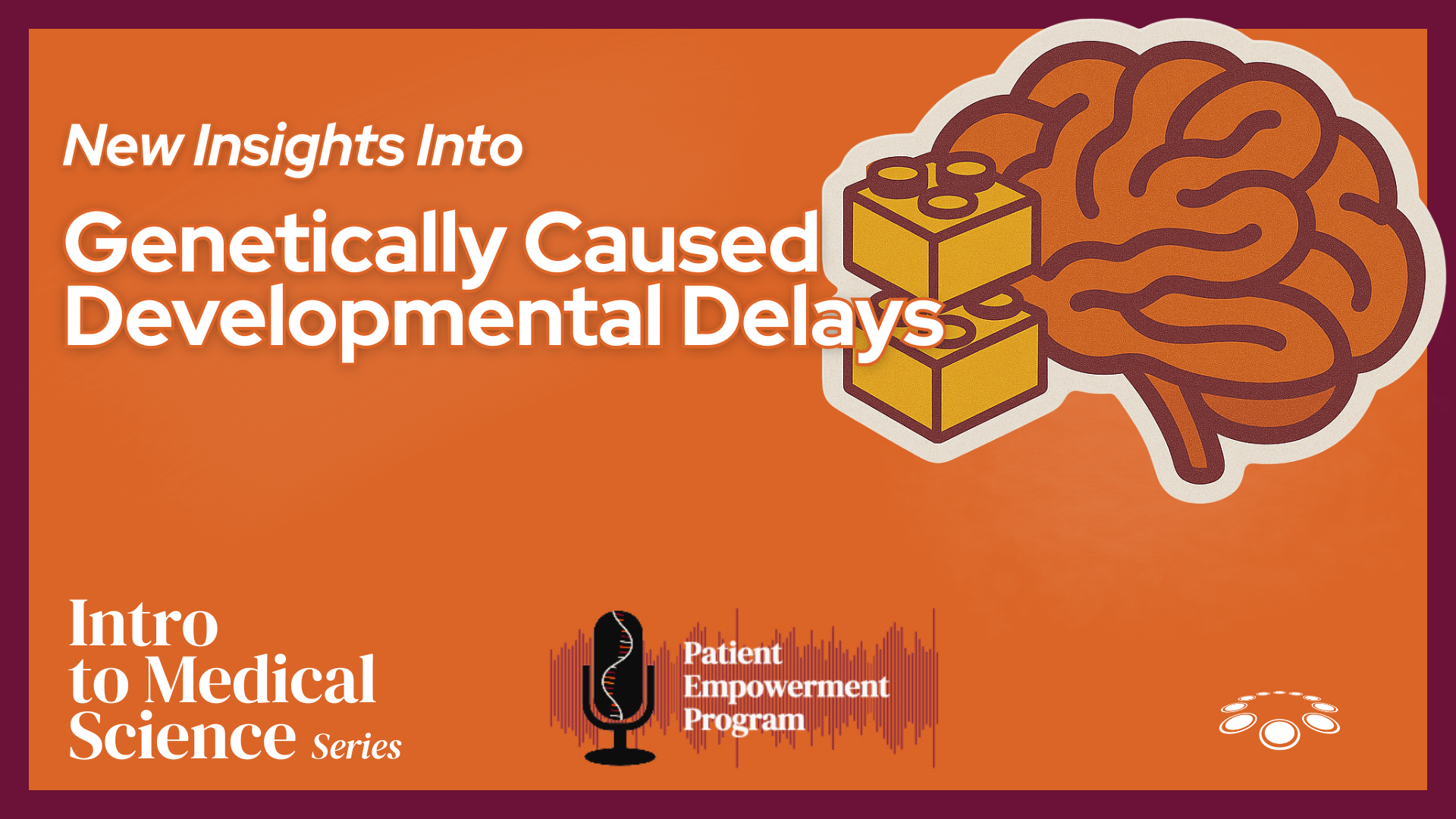Medical Science 35
New Insights into Genetically Caused Developmental Delays
July 23, 2025

Emerging observations from our work at n-Lorem suggest that not all developmental delays are permanent. In the absence of structural damage—such as microcephaly, congenital deformities of the skull or bones, or organ malformations—there appears to be potential for improvement in movement disorders, cognition, autistic features, and more. These insights point to a level of resilience and plasticity in the central nervous system that may be greater than previously believed, and they are beginning to reshape how the scientific community understands the brain.
In This Episode, We Explore:
- 2:12 The idea that a missed or delayed developmental step can lead to permanent deficits might not be true
- 3:30 Observations that support the conclusions that developmental deficits aren’t permanent unless they cause structural damage, like microcephaly, bone or skull deformities, or organ malformation
- 5:55 ASO treatment can dramatically enhance muscle strength
- 7:54 Abnormal movements and the inability to control movement
- 11:30 The damage seizures cause lead to further developmental delays
- 12:46 We’ve observed improvement in those with ataxia, or dizziness
- 14:25 Improved cognition observed in patients with various mutations, genes, and forms of intellectual disability
- 15:00 Recovery of speech and improvements in autistic features, such as intellectual disability, and other associated manifestations
- 16:10 Severe neuropathic pain makes development difficult, and reduction in pain has been observed
- 16:40 Ongoing issues with autonomic nervous system control—including blood pressure, heart rate, breathing, light response, and digestive and urinary function—are debilitating and make normal development nearly impossible
- 18:00 The implications of these observations are transforming the scientific community’s understanding of the brain
Watch on YouTube:
The host of the show is Dr. Stanley Crooke, a scientist, a physician, an entrepreneur and the father of antisense technology. Dr. Crooke is responsible for driving the development of antisense or ASO technology, an RNA-targeted technology responsible for the commercialization of three best- and first-in class medicines and more than 40 drugs in development. In 2020, Stan formed n-Lorem to use this powerful technology to develop experimental personalized ASO medicines for nano-rare patients (1 to 30 patients worldwide) for free, for life.
Credits
Hosted by: Dr. Stan Crooke.
Videographer: Jon Magnuson of Mighty One Productions.
Producers: Kira Dineen, Jon Magnuson, Andrew Serrano and Amy Williford
Links
Listen to our next Intro to Medical Science episode

We cannot do
this alone
Together we are changing the world—
one patient at a time
We hope that you join us on this journey to discover, develop and provide individualized antisense medicines for free for life for nano-rare patients. The ultimate personalized medicine approach – for free, for life.
Follow us on social for updates on our latest efforts



